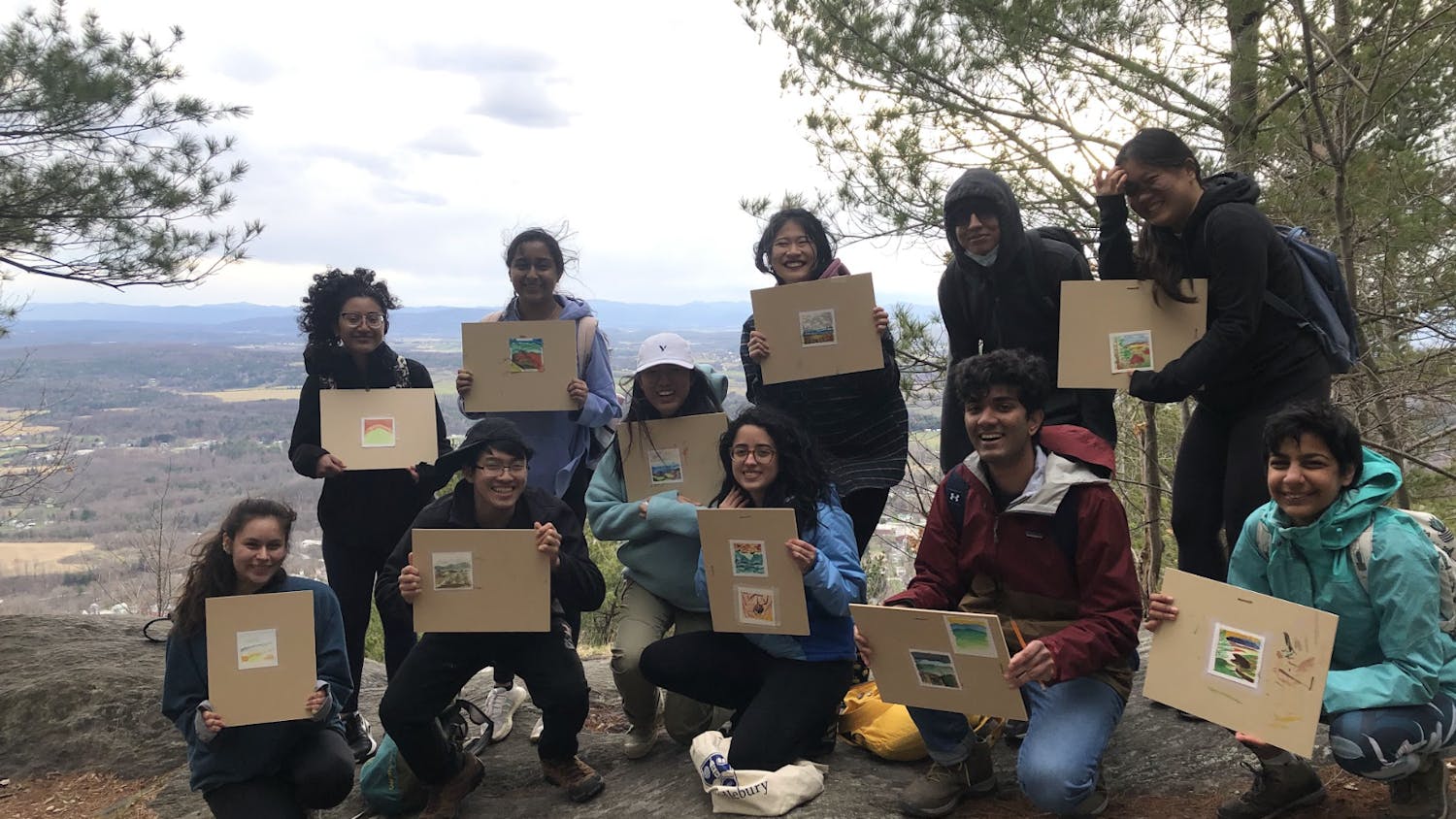On Saturday, Oct. 27, a group of students travelled to Evening Song Farm south of Rutland in Cuttingsville, Vt. to help with the last of the harvest before Hurricane Sandy hit. The owners of the farm have been reaching out to students this growing season for help during a hectic transition after their farm was completely wiped out by Hurricane Irene in August 2011. Groups from Castleton College, Middlebury and others have gone to volunteer this fall; Castleton College students have also gone to study their original farmland where the river cut away a significant portion of the bank, taking with it $250,000 of the farm’s infrastructure.
With Hurricane Sandy on the horizon, Kara Fitzgerald, one of the two farm owners, was particularly concerned about the success of the farm’s remaining projects. The harvest was behind schedule with much left to do and the “hoop houses,” or large plastic green houses, were likewise unfinished. Fitzgerald was anxious to get done what she could before another hurricane damaged her livelihood.
“We were helping with the harvest to make sure nothing gets lost during the storm,” said student volunteer Christian Cain ’14.
Last year, Irene caused more than $200 million in farm damage alone in the state, ruining farmland throughout Vermont, taking barns, covered bridges and other infrastructure. Evening Song Farm, like many Vermont farms, was not eligible for any aid from the Federal Emergency Management Agency (FEMA) because their property was treated as a business, even though it was also residential.
FEMA bought out homes that had washed away through their Hazard Mitigation program, which buys properties, with help from the state, so that families can relocate away from the original property that is likely to flood again in a new storm. Cain noted, however, that this buyout program did not extend to farms.
“I was surprised to discover,” said Cain, “ [that] this pair of young farmers received no governmental aid in rebuilding their livelihood due to a confusing and obscure tax classification problem.”
While Fitzgerald received aid from fundraising events, very little was from the state and none came from a national agency, leaving a good portion of the $250,000 still lost a year after Irene.
Continuing the extreme weather pattern, Sandy is expected to bring high winds, sustained rain and snow for those in higher elevations. The Nation Weather Service (NWS) issued a flood watch, noting that damages were likely, though not expected to rival those of Irene.
“Scattered to widespread downed trees and power lines are likely,” the NWS predicted. “In addition … minor structural damage to poorly constructed homes or buildings is expected.”
Looking ahead at this coming weather, Fitzgerald contacted Sustainability and Communication Outreach Coordinator Avery McNiff about getting a group together to work at the farm.
“[Fitzgerald] contacted me about the possibility of organizing a farm service day,” said McNiff. “The farm was completely wiped out by Irene last year and she has been working together with her partner seven days a week to rebuild the infrastructure in a nearby location.”
After reaching out to students through various environmental organizations, McNiff managed to find eight students for the service trip. Over the course of the day, students helped with harvesting large plots of carrots. Another volunteer, Clare Donohue-Meyer ’16, described what it was like to prepare for the coming storm.
“It was sobering to help prepare for Sandy in light of what had already happened to the farm during Irene. It really makes you think about the uncertainty farmers have to deal with as part of their day-to-day job,” said Donohue-Meyer.
“Helping Evening Song prepare for the storm made the day feel even more worthwhile and our work more significant,” added McNiff.
Despite these hardships, students also really enjoyed their time at the farm, picking, sorting and bagging carrots far away from books and classrooms. Eat Real president Stu Fram ’13 recalled his day of service fondly.
“Doing something as simple as harvesting carrots for an afternoon is a great way to escape the hyperactive bustle of campus, take a step back and not worry about academic productivity for a few hours,” he said.
“I had a great time pulling carrots,” said Cain. “[I] still haven’t washed all the dirt off from under my fingernails.”
All of the students began the trek back home delighted to have spent time outside with Fitzgerald among the long rows of deer-nibbled carrots’ tops. Many students enjoyed it so much that they hope to do it again in the coming weeks.
“I’m hoping to build off the momentum started with the first group and make farm service days a monthly happening [by] bringing in more involvement from students, faculty and staff members,” said McNiff.
Students Help Farm Prepare for Sandy
Comments



